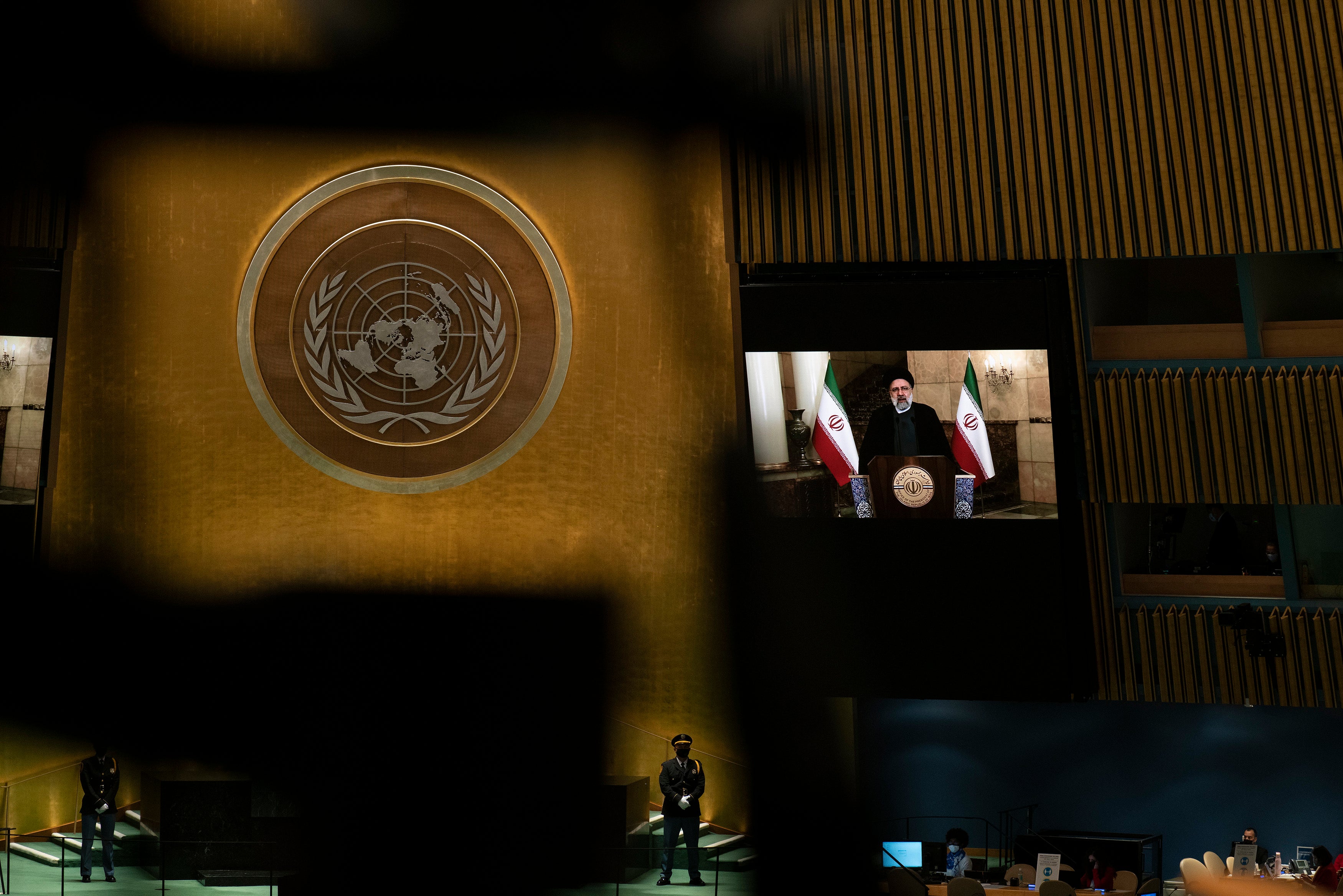Iran's president, criticizing US, likens sanctions to 'war'
Iran’s new president slammed U.S. sanctions imposed on his nation as a mechanism of war

Your support helps us to tell the story
From reproductive rights to climate change to Big Tech, The Independent is on the ground when the story is developing. Whether it's investigating the financials of Elon Musk's pro-Trump PAC or producing our latest documentary, 'The A Word', which shines a light on the American women fighting for reproductive rights, we know how important it is to parse out the facts from the messaging.
At such a critical moment in US history, we need reporters on the ground. Your donation allows us to keep sending journalists to speak to both sides of the story.
The Independent is trusted by Americans across the entire political spectrum. And unlike many other quality news outlets, we choose not to lock Americans out of our reporting and analysis with paywalls. We believe quality journalism should be available to everyone, paid for by those who can afford it.
Your support makes all the difference.Iran s new president slammed U.S. sanctions imposed on his nation as a mechanism of war Tuesday, packing a full slate of direct criticism of the United States into his first U.N. address as head of state.
“Sanctions are the U.S.’ new way of war with the nations of the world,” President Ebrahim Raisi said. Although some 100 heads of state and government are attending the U.N. General Assembly leaders' meeting in New York this week, Raisi delivered his remarks from Tehran remotely as some have also chosen to do.
Raisi, who was sworn in last month after an election, is a conservative cleric and former judiciary chief who is close to Iran's Supreme Leader, Ayatollah Ali Khamenei. He used his time before world leaders to slam the United States and espouse Iran's Islamic political identity.
“What is seen in our region today proves that not only the hegemonist and the idea of hegemony, but also the project of imposing Westernized identity have failed miserably,” Raisi said.
“Today, the U.S. does not get to exit Iraq and Afghanistan but is expelled,” he added. The U.S. military withdrew from Afghanistan and has largely withdrawn from Iraq.
“Today, the world doesn’t care about “America First” or “America is Back”,” he said, referring to the slogans used by Republican U.S. President Donald Trump and his successor, Democratic President Joe Biden
Raisi has promised to engage with the United States but has also has struck a hard-line stance, ruling out negotiations aimed at limiting Iranian missile development and support for regional militias — something the Biden administration wants to address.
Biden has made clear his desire to find a path to salvage the nuclear accord with Iran, that was negotiated by the Obama administration. Still, indirect talks between the U.S. and Iran have stalled and Washington continues to maintain crippling sanctions on the country.
"The United States remains committed to preventing Iran from gaining a nuclear weapon," Biden said in his own U.N. speech, delivered in person earlier Tuesday.
___
Dubai-based Associated Press journalist Aya Batrawy covers Saudi Arabia. Follow her on Twitter at http://twitter.com/ayaelb